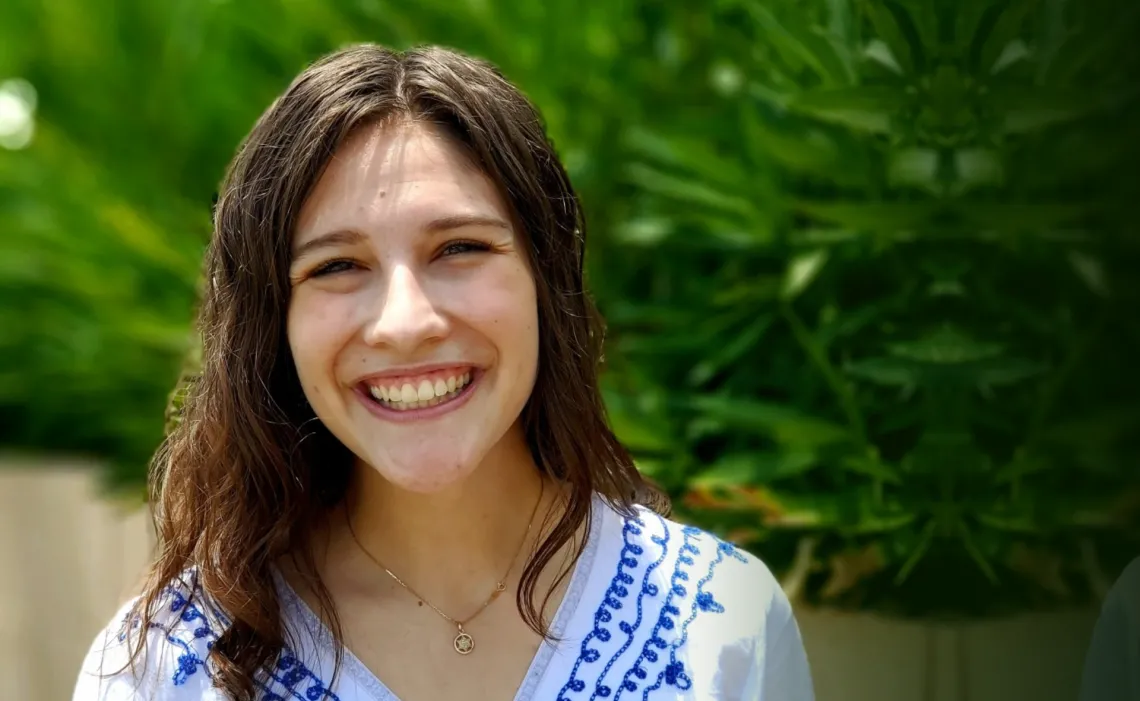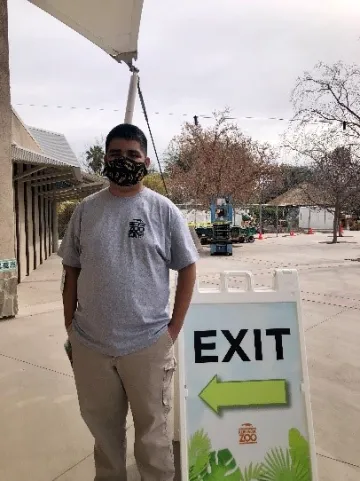The CACTI Blog: Expectations – My Experience Working with Students with Disabilities in Their First Job

By Kayla Tilicki, 2020-2021 Undergraduate Certificate in Developmental Disabilities
When I was ten years old, I was diagnosed with dysgraphia. My whole approach to learning changed but the expectation for me to do well in school, go to college, and get a job never did. I was raised knowing I would go to college one day and never doubted if I was smart enough to get there nor did I expect my disability to hold me back on my journey.
Throughout my journey I have faced setbacks. I have been told that I would not be able to achieve my goals because of my deficits, but I believed in myself and had my parents’ expectations to meet. We use our work to define who we are. When I introduce myself the first thing I say after my name is my college major and for my parents it’s the careers. If what we do is such a strong part of who we are why is it not common for individuals with disabilities to have access to work? Outside of self-identification work is the cornerstone to self-sufficiency because of the financial stability it provides. It is important to provide opportunities to develop professional skills and gain experience working, as well as having work-based expectations for individuals with disabilities.
I have spent this past semester working with a few high school students with disabilities in their first work experience as volunteer greeters at the Reid Park Zoo. It is their job to interact with guests, answer questions, point someone in the right direction to get answers, know the rules of the zoo, and know where things are located. I have had the opportunity to watch them grow and learn to work because that is what is expected of them. Each student has mastered their tasks as Zoo Greeters and rarely need help from their job coaches over the past few months.

When talking to the students, I asked, “What do you want to do after you graduate?” Each student had very different answers. One student had to think about the question, but said he likes working at the zoo and would keep working there. Another student’s teacher told me he was looking at getting a paid job at the zoo working with the goats. A third student expressed wanting to go into graphic design and he told me he was going to classes to learn more about the graphic design field entails. During another week he excitedly told me he had something to show me, it was a picture of one of his drawings. In that moment I knew he could go on to create some fantastic graphic designs. Even though each one of these students has a different end goal, working at the zoo is allowing them to learn the interpersonal skills necessary for holding almost any job. Having this opportunity to work has given these students expectations for themselves and what they want to do with their lives.
Expectations give everyone a goal to achieve or a bar to meet and exceed. For individuals with disabilities, this bar is often not present or set very low. The existing societal expectation is that individuals with disabilities cannot work and therefore shouldn’t have employment opportunities. The expectation to get a job, get an education, or master a trade is important for everyone. Outside of family expectations, there is a lack of societal expectations as well. This leads to policies allowing individuals to be paid a subminimum wage. Shifting the stance from “this person could never work” to “what supports does this person need to pursue work” shifts the focus from an individual’s perceived deficits to their support needs. This past semester I have had the opportunity to see how effective job coaching can be on fostering success in a work environment. While also using simple tools like maps and graphics can be used as reminder. Taking a moment to help someone acknowledge their feelings allows them to have high quality work performance and overachieve in their assigned tasks. We all need support at different points in our lives and it is the same for individuals with disabilities looking to get into the work force.
The CACTI Blog features the voices of our interdisciplinary trainees and Community Advisory Council members as they highlight diverse images of people with disabilities and provide community information and advocacy on disability issues. Check Out The CACTI Blog
